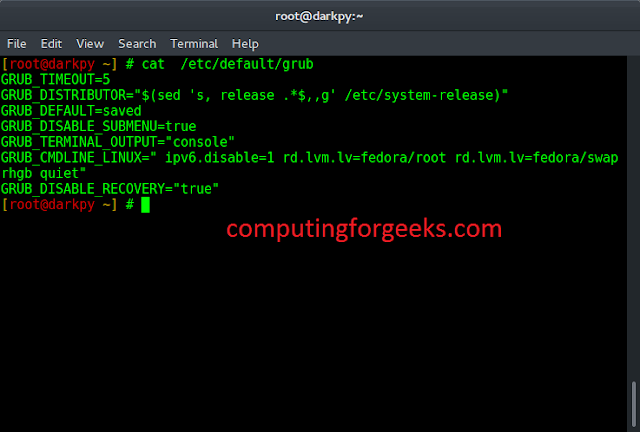Given a number N, the task is to find the number of ways N can be partitioned, i.e. the number of ways that N can be expressed as a sum of positive integers.
Note: N should also be considered itself a way to express it as a sum of positive integers.
Examples:
Input: N = 5
Output: 7
5 can be partitioned in the following ways:
5
4 + 1
3 + 2
3 + 1 + 1
2 + 2 + 1
2 + 1 + 1 + 1
1 + 1 + 1 + 1 + 1
Input: N = 10
Output: 42
This post has been already discussed in Ways to write n as sum of two or more positive integers. In this post, an efficient approach is discussed.
Approach(Using Euler’s recurrence):
If p(n) is the number of partitions of N, then it can be generated by the following generating function:
Using this formula and Euler’s pentagonal number theorem, we can derive the following recurrence relation for p(n): (Check the Wikipedia article for more details)
where k = 1, -1, 2, -2, 3, -3, … and p(n) = 0 for n < 0.
Below is the implementation of above approach:
C++
// C++ implementation of above approach#include <bits/stdc++.h>using namespace std;// Function to find the number// of partitions of Nlong long partitions(int n){ vector<long long> p(n + 1, 0); // Base case p[0] = 1; for (int i = 1; i <= n; ++i) { int k = 1; while ((k * (3 * k - 1)) / 2 <= i) { p[i] += (k % 2 ? 1 : -1) * p[i - (k * (3 * k - 1)) / 2]; if (k > 0) k *= -1; else k = 1 - k; } } return p[n];}// Driver codeint main(){ int N = 20; cout << partitions(N); return 0;} |
Java
// Java implementation of above approachclass GFG { // Function to find the number // of partitions of N static long partitions(int n) { long p[] = new long[n + 1]; // Base case p[0] = 1; for (int i = 1; i <= n; ++i) { int k = 1; while ((k * (3 * k - 1)) / 2 <= i) { p[i] += (k % 2 != 0 ? 1 : -1) * p[i - (k * (3 * k - 1)) / 2]; if (k > 0) { k *= -1; } else { k = 1 - k; } } } return p[n]; } // Driver code public static void main(String[] args) { int N = 20; System.out.println(partitions(N)); }} // This code is contributed by Rajput-JI |
Python 3
# Python 3 implementation of # above approach# Function to find the number# of partitions of Ndef partitions(n): p = [0] * (n + 1) # Base case p[0] = 1 for i in range(1, n + 1): k = 1 while ((k * (3 * k - 1)) / 2 <= i) : p[i] += ((1 if k % 2 else -1) * p[i - (k * (3 * k - 1)) // 2]) if (k > 0): k *= -1 else: k = 1 - k return p[n]# Driver codeif __name__ == "__main__": N = 20 print(partitions(N))# This code is contributed # by ChitraNayal |
C#
// C# implementation of above approach using System;class GFG { // Function to find the number // of partitions of N static long partitions(int n) { long []p = new long[n + 1]; // Base case p[0] = 1; for (int i = 1; i <= n; ++i) { int k = 1; while ((k * (3 * k - 1)) / 2 <= i) { p[i] += (k % 2 != 0 ? 1 : -1) * p[i - (k * (3 * k - 1)) / 2]; if (k > 0) { k *= -1; } else { k = 1 - k; } } } return p[n]; } // Driver code public static void Main(String[] args) { int N = 20; Console.WriteLine(partitions(N)); } } // This code has been contributed by 29AjayKumar |
PHP
<?php// PHP implementation of above approach// Function to find the number// of partitions of Nfunction partitions($n){ $p = array_fill(0, $n + 1, 0); // Base case $p[0] = 1; for ($i = 1; $i < $n + 1; $i++) { $k = 1; while (($k * (3 * $k - 1)) / 2 <= $i) { $p[$i] += (($k % 2 ? 1 : -1) * $p[$i - ($k * (3 * $k - 1)) / 2]); if ($k > 0) $k *= -1; else $k = 1 - $k; } } return $p[$n];}// Driver Code$N = 20;print(partitions($N));// This code is contributed // by mits?> |
Javascript
<script>// javascript implementation of above approach // Function to find the number // of partitions of N function partitions(n) { var p = Array(n + 1).fill(0); // Base case p[0] = 1; for (i = 1; i <= n; ++i) { var k = 1; while ((k * (3 * k - 1)) / 2 <= i) { p[i] += (k % 2 != 0 ? 1 : -1) * p[i - (k * (3 * k - 1)) / 2]; if (k > 0) { k *= -1; } else { k = 1 - k; } } } return p[n]; } // Driver code var N = 20; document.write(partitions(N));// This code is contributed by todaysgaurav</script> |
627
Time Complexity: O(N?N)
Space Complexity: O(N), since N extra space has been taken.
Ready to dive in? Explore our Free Demo Content and join our DSA course, trusted by over 100,000 neveropen!




